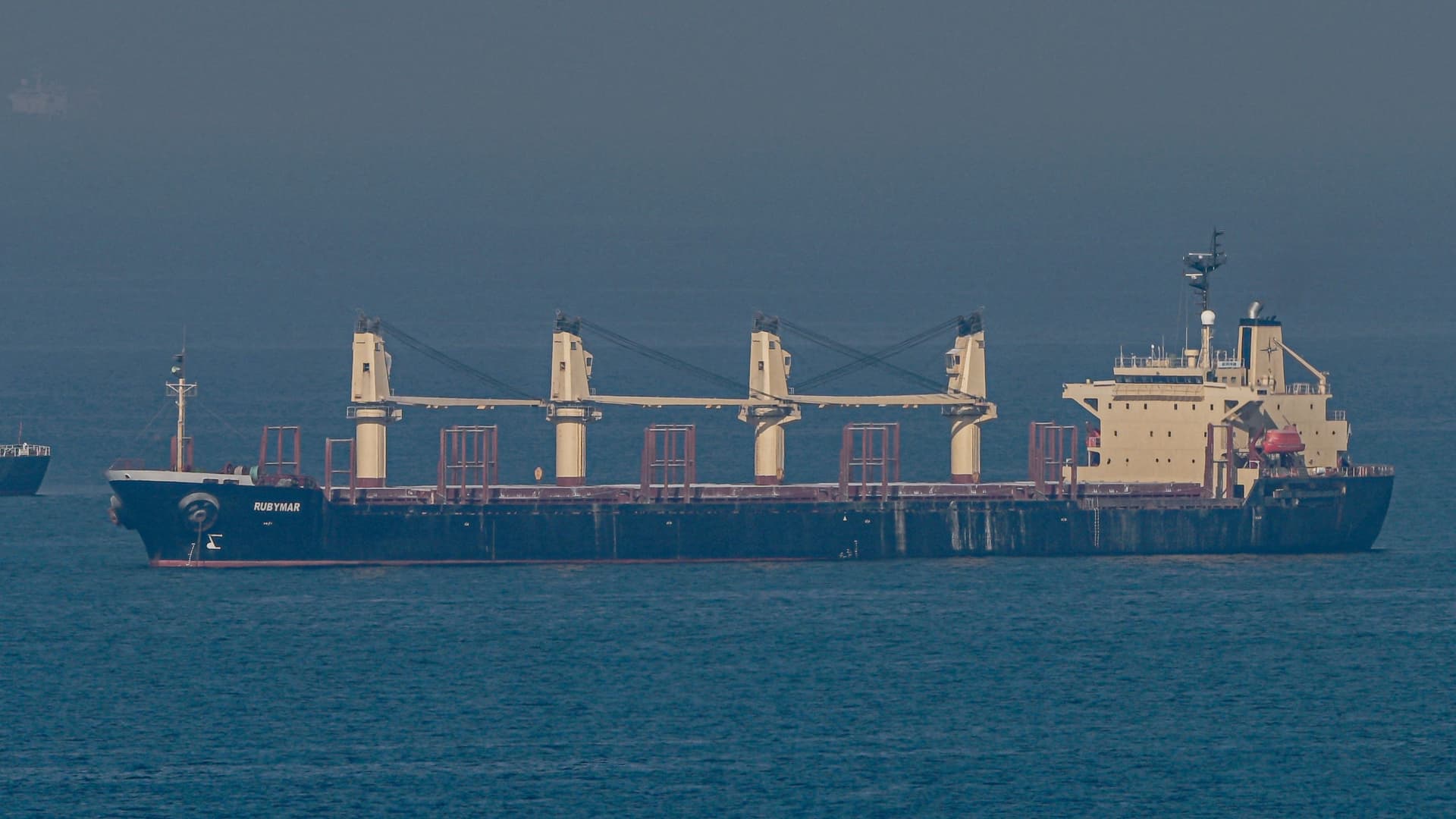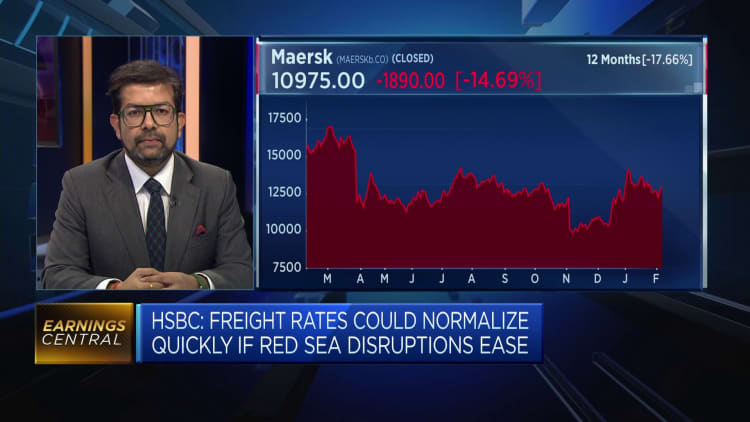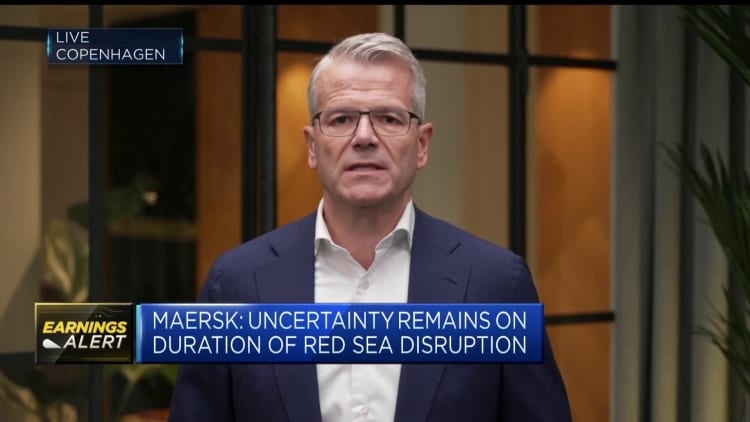
Cargo ship Rubymar, carrying Ukrainian grain, sails at the entrance of Bosphorus, in the Black Sea off the coast off Kumkoy, north of Istanbul, on November 2, 2022.
Ozan Kose | AFP | Getty Images
A vessel impaired in a mid-February Houthi attack offshore Yemen remains abandoned at sea awaiting towing to safe harbor amid growing concerns of an oil spill.
The Iran-backed militant group claimed it dealt “catastrophic damage” during a Feb. 18 offensive against the Belize-flagged general cargo vessel Rubymar, which the Houthis said was “at risk of potential sinking in the Gulf of Aden.” The tanker’s crew abandoned ship.
The attack caused “an 18-mile oil slick,” the U.S. Central Command said in a social media update on Feb. 24, adding that the tanker is anchored, but taking on water.
“The M/V Rubymar was transporting over 41,000 tons of fertilizer when it was attacked, which could spill into the Red Sea and worsen this environmental disaster,” Centcom said.
Roy Khoury, CEO of the Rubymar’s shipping broker Blue Fleet Group, told CNBC that the vessel is now awaiting the assistance of the U.S. navy to tow the ship to Saudi port Jeddah, as neither Aden nor the authorities of Djibouti, located opposite of Yemen, have accepted to receive the tanker on their grounds.
The Saudi foreign ministry, U.S. navy and U.S. defense department did not immediately respond to a CNBC request for comment on whether they will accept or facilitate delivery of the tanker.
Khoury added that, as the Rubymar’s crew has deserted the ship, his company has no information on the status of a possible oil leak.

A spokesperson for the International Maritime Organization told CNBC that the organization is aware of the incident and closely monitoring the situation. As the IMO lacks operational facilities such as satellites, it also did not independently verify the oil slick.
Houthi forces have been assailing ships in the Red Sea with increasing frequency since the end of last year, disrupting marine traffic through a key route that accounts for around 12% of global maritime transit. Several shipping firms and oil companies have consequently suspended journeys through the Red Sea or redirected voyages around Africa. U.S. and U.K. authorities have engaged Yemeni positions in response to the offensives, which the Houthis claim to undertake out of solidarity with Palestinian civilians harmed in the ongoing war between Israel and Palestinian militant group Hamas in the Gaza Strip.
The Rubymar’s casualty has erupted concerns over the environmental impairment of such attacks. Oil spills are widely feared for their broad and long-lasting environmental impact on marine habitats, including toxic exposure for vulnerable wildlife.
“Oil being a highly toxic substance means that any oil spill has adverse impacts on the surrounding environment and communities, the degree of which depends on several factors such as the quantity released and the sea current,” Julien Jreissati, MENA program director for Greenpeace, told CNBC.

“In the case of Rubymar, beyond the oil leakage coming from the engine room, another risk originates from its potential fertilizer cargo.”
Yemen was caught on the brink of an environmental disaster for the better part of a decade, after a separate, 47-year-old decaying supertanker, the FSO Safer, was stranded off the Red Sea coast after civil war ignited in the Middle Eastern country. The vessel was prevented from receiving maintenance since 2015, raising the risks of a potential oil spill that the U.N. estimates could have cost $20 billion in cleanup operations and spanned four times the size of the 1989’s Exxon Valdez leak — the second largest oil spill in U.S. history.
The U.N. said it was finally able to undertake and complete a ship-to-ship transfer of the 1.1 million barrels from the Safer onto a separate tanker in August last year.
“Less than 2 percent of the original oil cargo remains mixed in with sediment that will be removed during the final cleaning of the Safer,” the U.N. said at the time.
Assessing the risks inflicted unto the Safer by the spate of nearby Houthi aggressions in the Red Sea, Greenpeace’s Jreissati said “it’s reasonable to assume that any escalation of violence in the area may pose a threat on this front.”
